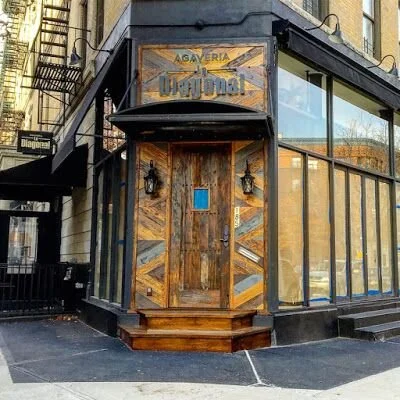Top 7 Questions to Ask a Commercial Builder and Renovation Contractor for Your New York City Project
With all of the moving parts involved in a commercial project, not every contractor will be the right match for you or your project. Choosing the right company takes time and research. Here are the top 7 questions to ask a commercial builder and renovation contractor for your New York City project.
Related: How to Find the Right Commercial Builder in the Queens and Brooklyn, NY Areas
1. How long have you been in business, and have you done business under a different name?
You want to be sure the company has experience with the unique scope of your specific project. Experienced companies have more efficient systems that make the project flow smoothly. While new companies may do excellent work, be sure that you work with a company that can handle your exact project from start to finish.
Sometimes, a company will change its name. This can be a red flag because even if a company’s ownership changes, the name is often retained for name recognition (customer loyalty). If you can’t look up a company’s history because of name changes, it could be because they want to avoid negative attention.
2. What licenses do you hold?
Surprisingly, general contractors are not required to carry a contractor’s license in New York State. However, local governments have licensing requirements that ensure a contractor’s work practices are safe, legal, and ethical.
Most importantly, you want to work with a commercial builder or renovation contractor who is licensed in specialized trades Whether they have in-house electricians, crane operators, plumbers, and other trades - or they subcontract them - many trades require licenses, and you want to be sure you can physically examine these licenses and make a copy for your record. This goes whether the work is to be performed 100% in-house or whether the builder or renovation contractor will be hiring subcontractors.
3. What is the level of insurance you carry?
Several types of insurance are necessary before you allow a company to work on your property.
Workman’s compensation insurance covers any injuries or damages that happen to the company’s employees on your premises. NEVER allow any company to do work on your property if they are not adequately insured. Don’t simply ask if they have insurance… be sure they have coverage that is adequate to protect you! Be sure to ask for a copy of this and keep it with your records.
What liability and property damage insurance do they carry? If the structure fails… if their equipment damages your property… if an employee causes an accident… contingencies must be fully insured so you won’t be stuck with the bill if damage occurs to your property or anyone on the premises is injured.
4. How much will the project cost?
Be sure that your bid, and the subsequent contract, are absolutely crystal clear and all costs are itemized. This includes labor, materials, and extra costs such as mark-ups due to delays. It also specifies who is financially responsible for damage repairs. There should be an agreement as to unexpected delays or other events that can halt a project.
5. What is the project timeline?
Ask for a clear and specific timeline. Of course, property challenges, materials or labor shortages, inclement weather, and other factors can significantly alter the timeline, but without a starting timeline, your project could drag on indefinitely.
6. Who is the contact person?
Many companies will assign a project manager who is your point of contact, and they should be available to you anytime. Be sure to set up a frequent and regular schedule for receiving updates so you can stay on top of any emerging problems.
7. Who will be on the project site?
With large commercial builds or renovations, you want a project manager to be onsite at all times, not just popping in regularly for a progress inspection. The many moving parts of a project must be handled on the fly, and you want someone capable on hand at all times to make decisions.

